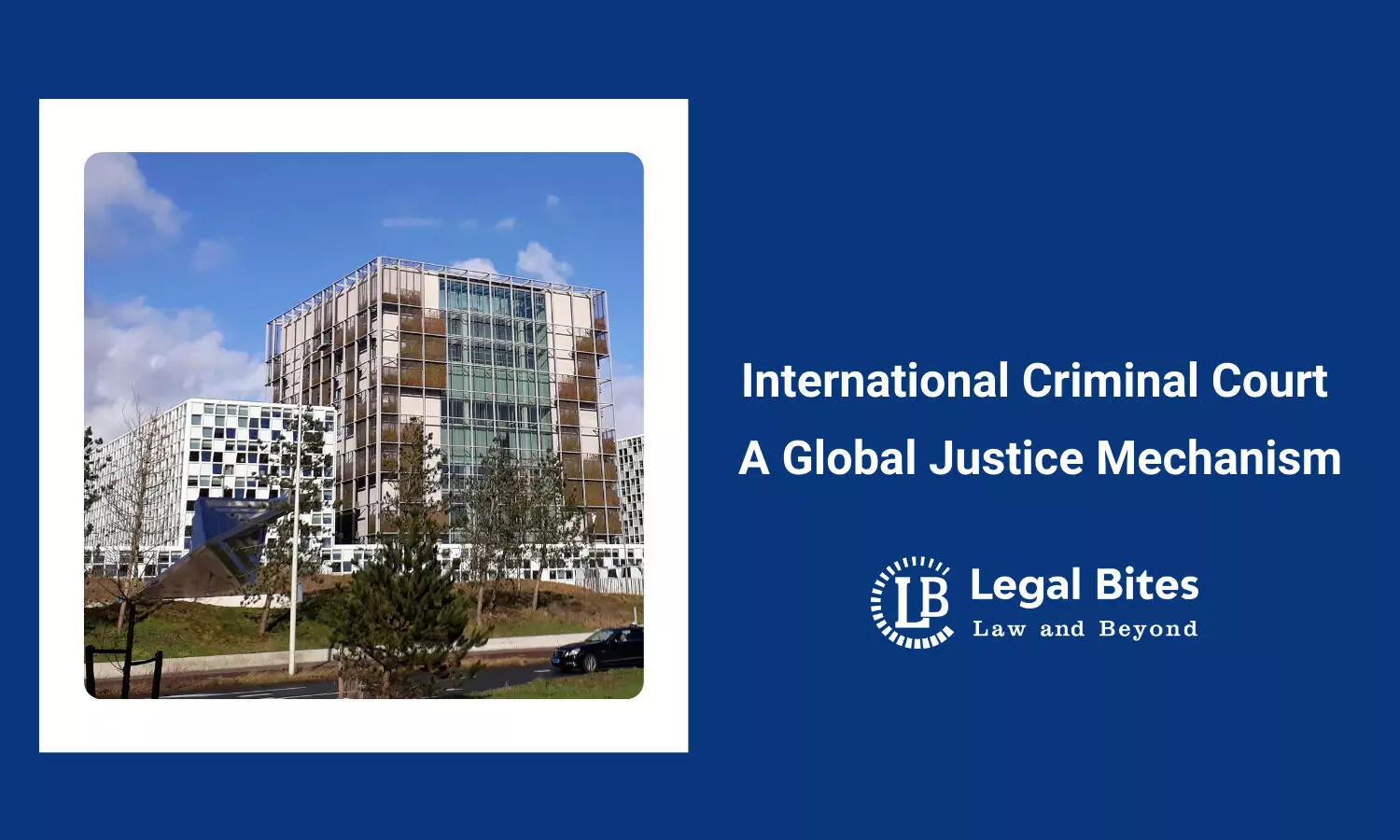International Criminal Court: A Global Justice Mechanism
International Criminal Court stands as a beacon of global justice, striving to hold individuals accountable for the gravest crimes and uphold the rule of law.;

The International Criminal Court (ICC), established under the Rome Statute in 2002, serves as a landmark institution in the global pursuit of justice and accountability. It operates as an independent, permanent court tasked with prosecuting individuals for crimes of genocide, war crimes, crimes against humanity, and the crime of aggression.
As a court of last resort, the ICC complements national judicial systems and steps in only when states are unwilling or unable to prosecute serious crimes. This article explores the ICC's origins, structure, jurisdiction, challenges, and evolving role in the international legal framework.
Origin and Establishment
The concept of an international criminal court emerged after the horrors of World War II and the Nuremberg and Tokyo Tribunals, which prosecuted key perpetrators of war crimes. The idea gained momentum with the establishment of ad hoc tribunals for the former Yugoslavia and Rwanda in the 1990s. Recognizing the need for a permanent institution to address such crimes, the Rome Conference convened in 1998, resulting in the adoption of the Rome Statute by 120 nations. The statute entered into force on July 1, 2002, marking the formal establishment of the ICC.
Structure and Functioning
ICC comprises four primary organs:
- Presidency: Responsible for the overall administration of the court, the Presidency includes the President and two Vice-Presidents, elected by the judges for a three-year term.
- Judicial Divisions: Divided into Pre-Trial, Trial, and Appeals Divisions, these divisions ensure fair and impartial proceedings. Judges from diverse legal backgrounds are elected by the Assembly of States Parties (ASP).
- Office of the Prosecutor (OTP): Tasked with investigating and prosecuting crimes within the ICC’s jurisdiction, the OTP operates independently under the leadership of the Prosecutor.
- Registry: Provides administrative and operational support, including witness protection, outreach, and detention facilities.
Assembly of States Parties oversees the functioning of the ICC, electing its officials and approving its budget.
Jurisdiction
The ICC’s jurisdiction is limited to crimes committed after the Rome Statute enters into force. It can exercise jurisdiction in three scenarios:
- Referral by a State Party: Member states can refer cases involving crimes committed on their territory or by their nationals.
- UN Security Council Referral: The UN Security Council can refer cases, as it did with Sudan (Darfur) and Libya.
- Proprio Motu Investigation: The Prosecutor can initiate investigations with authorization from the Pre-Trial Chamber.
The court’s jurisdiction is complementary to national systems, meaning it intervenes only when states fail to act.
Landmark Cases
Since its inception, the ICC has made significant contributions to international justice, including:
- Lubanga Case (2012): The court’s first conviction was of Thomas Lubanga, a Congolese warlord, for enlisting child soldiers.
- Jean-Pierre Bemba (2016): Convicted for crimes against humanity and war crimes committed in the Central African Republic.
- Al-Mahdi Case (2016): Marked the first prosecution for the destruction of cultural heritage in Mali, emphasizing the importance of cultural preservation in conflict zones.
Challenges Faced by the ICC
Despite its achievements, the ICC faces numerous challenges:
- Limited Membership: Major powers like the United States, China, Russia, and India have not ratified the Rome Statute, limiting the court’s jurisdiction.
- Political Pressure: Accusations of bias and political influence, particularly in cases involving African states, have marred its credibility.
- Enforcement Issues: Lacking its own enforcement mechanism, the ICC relies on state cooperation to execute warrants, which is often inconsistent.
- Funding Constraints: The court’s dependence on contributions from member states hampers its capacity to handle complex investigations and prosecutions.
- Complex Legal Processes: Lengthy trials and procedural complexities have drawn criticism for inefficiency and delayed justice.
Role in International Justice
The ICC plays a pivotal role in fostering accountability and deterring future atrocities. By holding individuals accountable for the gravest crimes, it underscores the principle of individual responsibility in international law. The court also serves as a platform for victims to seek justice and reparations, amplifying their voices on a global stage.
Moreover, the ICC’s work contributes to the development of international criminal jurisprudence. Its decisions and legal interpretations shape the evolving framework of international law, guiding national and international courts.
Reforms and Future Directions
To enhance its effectiveness, the ICC must address its shortcomings and adapt to evolving global dynamics. Potential reforms include:
- Expanding Membership: Encouraging more states to ratify the Rome Statute to enhance the court’s universality.
- Strengthening Cooperation: Building partnerships with states, regional organizations, and civil society to improve enforcement and support.
- Streamlining Procedures: Simplifying legal processes to ensure timely justice while maintaining fairness.
- Enhancing Outreach: Increasing awareness about the ICC’s mandate and activities to garner public support and legitimacy.
- Innovative Funding Mechanisms: Exploring sustainable funding options to reduce dependence on state contributions.
Conclusion
International Criminal Court represents a cornerstone of the global justice system, embodying the international community’s commitment to ending impunity for heinous crimes. While it faces significant challenges, the ICC’s achievements highlight its potential to advance accountability, deter future atrocities, and uphold the rule of law. By addressing its limitations and fostering global cooperation, the ICC can strengthen its role as a beacon of justice in an increasingly interconnected world.
References
[1] International Criminal Court, Available Here
[2] Prosecutor v. Thomas Lubanga Dyilo, ICC-01/04-01/06, Judgment: 14 March 2012, Available Here
[3] Prosecutor v. Jean-Pierre Bemba Gom, ICC-01/05-01/08, Judgment: 21 March 2016, Available Here
[4] Prosecutor v. Ahmad Al Faqi Al Mahdi, ICC-01/12-01/15, Judgment: 27 September 2016, Available Here

